News
Who wears the crown? …as 13 contestants mount stage in 2025 Miss Ghana Beauty Pageant tonight
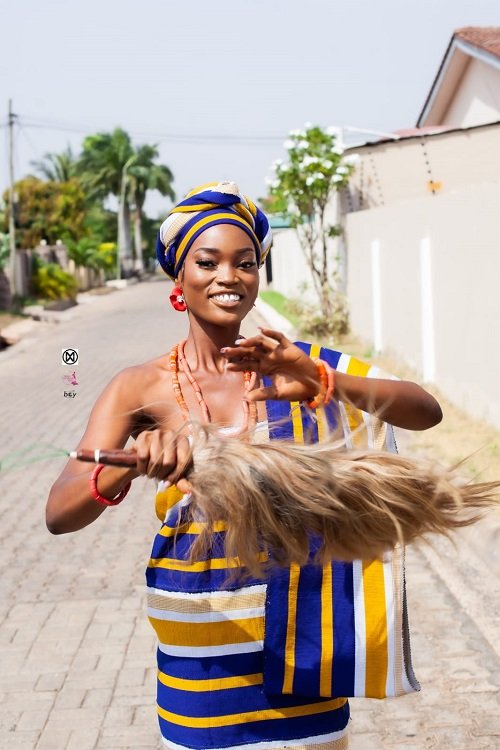
Thirteen young and vibrant ladies selected across the regions of Ghana will vie for the prestigious 2025 Miss Ghana Beauty Pageant crown as the event is held today at the Avenue Event Center in Accra.







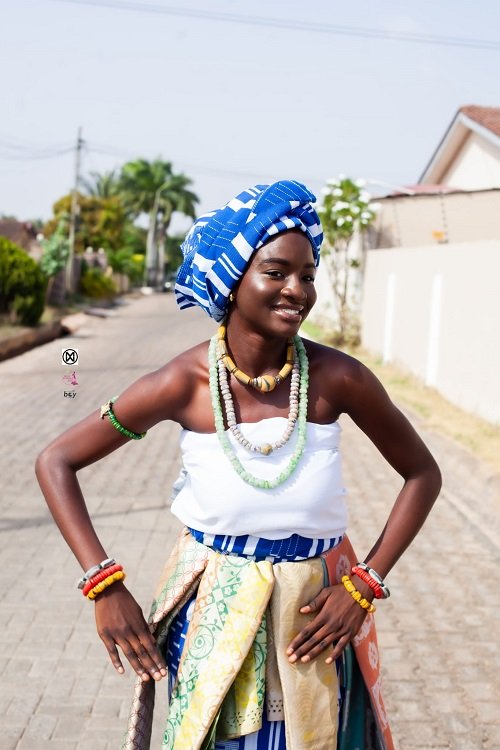




Each contestant will rep¬resent their respective regions as they compete for the prestigious crown.
The contestants have gone through the weekly tasks ahead of the highly anticipated grand finale.
According to the organisers, this year’s winner will not only represent Ghana on the global stage at Miss World but also lead charitable initiatives under the Miss Ghana Foundation, focusing on support¬ing vulnerable communities.
Below are briefs about the contestants.
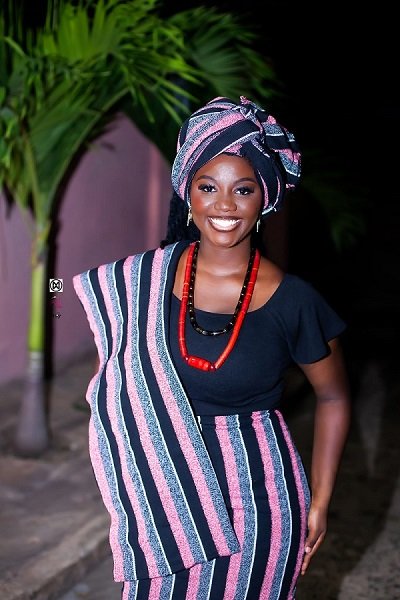
Deborah Fidelia Naa Ayeley
Deborah Fidelia Naa Ayeley, is a 25- year old Christian and hails from the Greater Accra Region. She loves watching movies, reading, listening to music and volunteering.

Nana Adjoa Enninful
Nana Adjoa is an 18-year old lady shaped by the values and culture of her hometown, Winneba in the Central Region. My hobbies include playing basketball, engaging in arts and listening to music.
These activities do not only provide entertainment but also contribute to her
Nutornutsi Priscilla Megblemdio
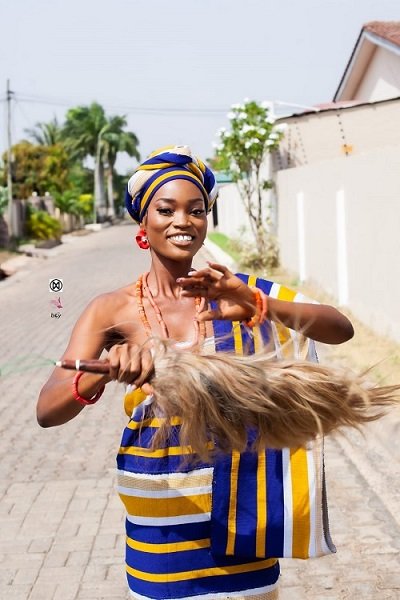
Nutornutsi Priscilla Megblemdio is a 22-year old from Tadzewu in the Volta Region of Ghana.
She is a proud fashion designer and a model who loves cooking, listening to music and watching movies. She finds passion in team work and always learns something new.
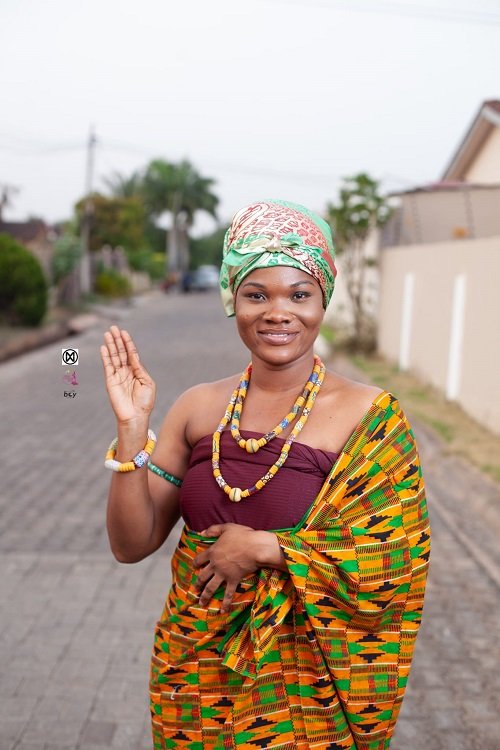
Priscilla Ayeley Kwablah
Priscilla Ayeley Kwablah 23, is a Christian
who loves reading and listening to
music representing the Western North
Region of Ghana.
She believes every lady should be
determined and have the zeal to attain
every height in life.
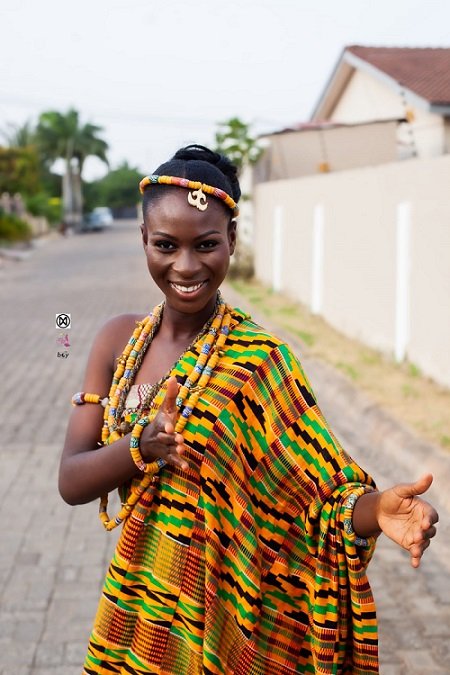
Stella Afua Sakaa Sak
Stella Afua Sakaa Sak is a graduate of the University of Education, Winneba. She is representing the Western Region proudly.
She is a teacher by profession and an entrepreneur who loves to model and paint in her free time.
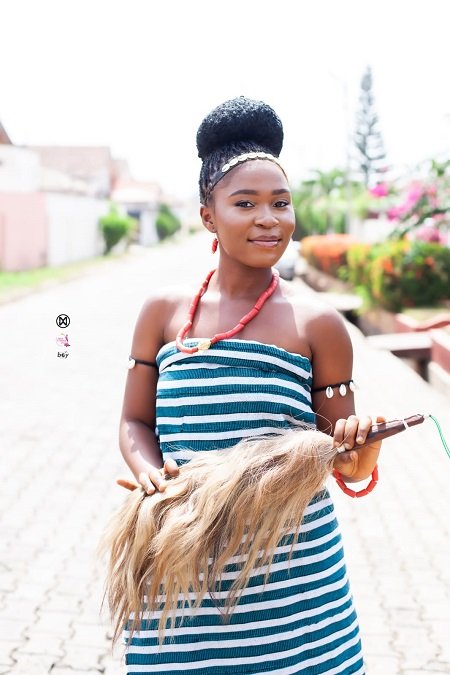
Thelma Dzifa Sallah
Thelma is a 22-year old spoken word artist
and a student of the Kwame Nkrumah University of Science and Technology (KNUST).
She hails from the Upper West Region of Ghana.
Her hobbies are reading and writing and
listening to good music.
The Miss Ghana project has always been a
dream she harboured since she was a little
girl but growing up, she realised it is not
just about the crown, the glitter and the
sash.
She now sees the crown as a symbol of
change in the lives of not only the ladies
participating but also a change in the lives
of the marginalised group of people in the
country.
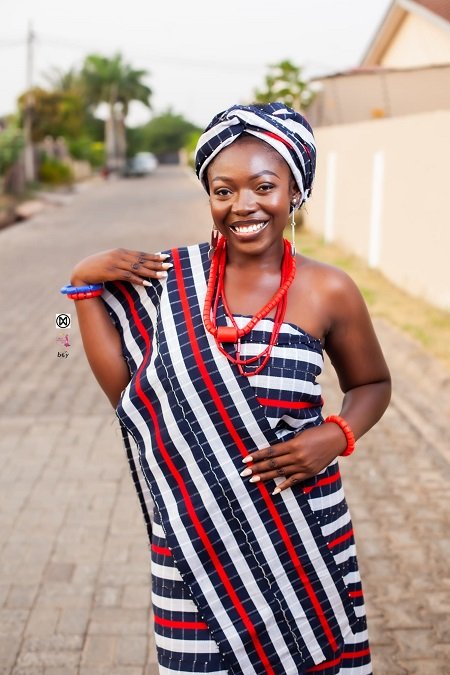
Theresa Weyerane Adiali
Theresa Weyerane Adiali, 28, is a journalist with the Media Foundation for West Africa as an Investigative Journalism Fellow with a background in communication, and a passion for impactful storytelling.
Theresa has been a force in driving change for the marginalised communities
through humanitarian work with
UNICEF Ghana, and as a radio and TV news broadcaster.
Theresa envisions Miss Ghana as a platform to empower rural women and children in climate displaced communities in Ghana.

Angelina Elikplim Quason-Coffie
Angelina Elikplim Quason-Coffie is a final year student Physician Assistant.
Crocheting and reading are the hobbies she enjoy. Combining beauty, intellect and a deep commitment to societal impact, she aims to use the platform to advocate better
healthcare and welfare of aged men and women.
Her project focuses on improving access to quality healthcare while providing essential support and care for the elderly in communities.
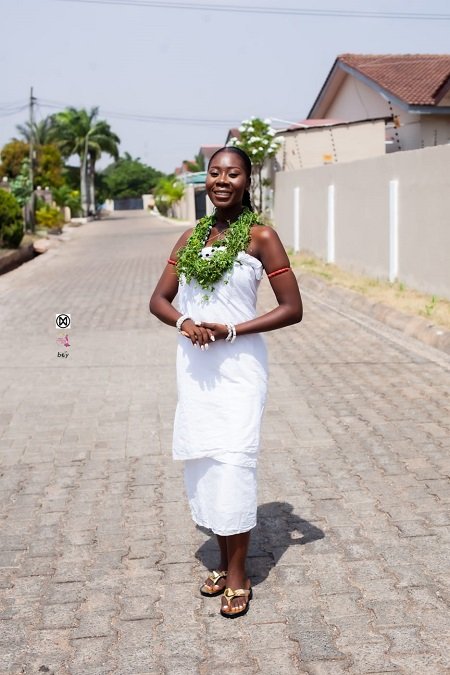
Emmanuella Kudjordji
Emmanuella Kudjordji is a 24-year old professional teacher and a model from Denu in the Volta Region of Ghana.
She loves to promote girls education hence, her project titled, ‘Empowering girls, empowering the nation.’
She loves to model, listen to music and dance.
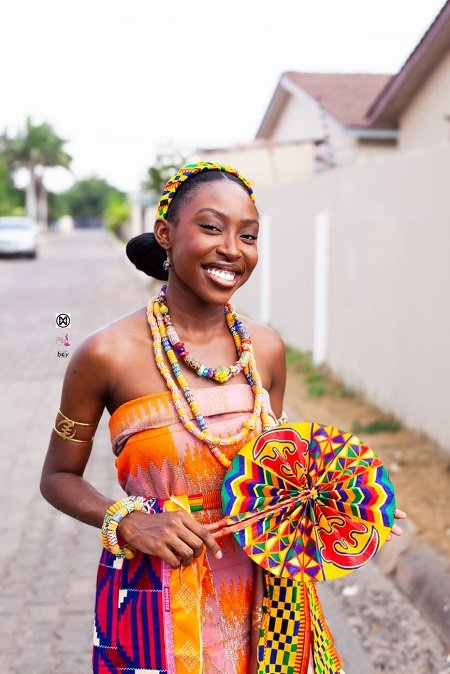
Jutta Ama Pokuah Addo
Jutta Ama Pokuah Addo is a 20-yearold
Christian from the Central Region
who loves golf and painting.
She is a dual student at the University
of Professional Studies, Accra and Wisconsin International University.
She sees herself as a young woman
with a bold spirit with a bright future
ahead of her.
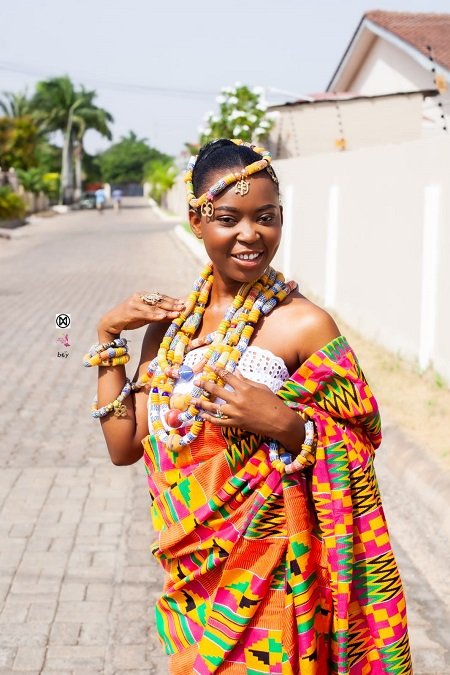
Maud-Gail Cindy Nuworgah
Maud-Gail Cindy Nuworgah is a proud Voltarian and recently graduated from the University of Cape Coast, where she developed
a strong foundation in her chosen field of study.
Driven by a passion for self-improvement and community impact, she aims to use her
skills and experiences to contribute positively to society.
She values hard work, resilience, and cultural pride, to shape her outlook on life and aspirations.
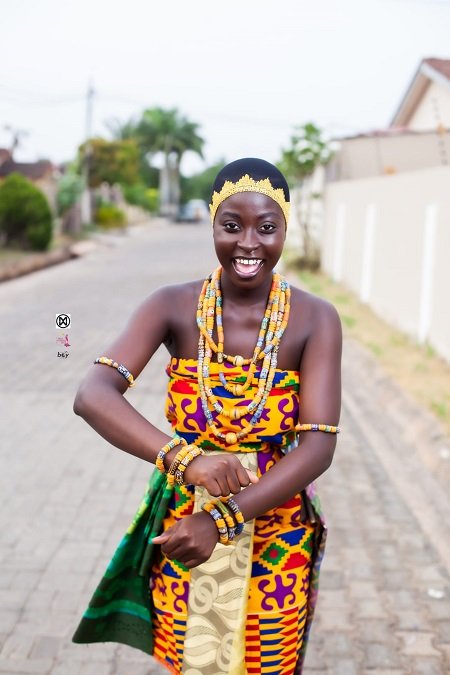
Oduro Maud Anti
Oduro Maud Anti is honoured to represent the Ashanti Region as a delegate for Miss Ghana 2025.
She is a 22-year-old student of the Krobo Girls’ Senior High School who progressed to read Bsc. Information Technology at the
University of Ghana.
She is passionate about mental health awareness and girls’ education and aspires to inspire young girls to dream big and
pursue their goals with determination. She is driven by Ghana’s rich culture and resilience.

Melissa Mintah
Melissa Mintah is a 26 years old graduate from the Central University. She is an ambitious young woman pursuing a dream to become a lawyer.
With a passion for justice and a heart for advocacy, she balances her rigorous studies in law with grace and poise on the pageant stage.
Her dedication to education is matched by a commitment to empower others, using the platform to promote important social causes and ending poverty.
In addition to her academic and pageant
pursuits, she loves to cook and find
joy in creating delicious meals for family
and friends.
News
Prioritise affordable treatment of sickle cell treatment —Health Expert

Health experts have urged Ghana to prioritise affordable and accessible treatment for sickle cell disease (SCD) as advanced, but costly curative therapies remain out of reach.
SCD, an inherited blood disorder, affects about three in every 100 newborns in Ghana.
Globally, around 1,000 babies are born with the condition daily, with three-quarters in sub-Saharan Africa.
The disease causes severe complications including chronic pain, anaemia, infections, strokes and organ damage, often leading to shortened life expectancy.
In recent years, gene therapy has been developed as a potential cure.
However, its cost—running into millions of dollars per patient—makes it financially and technically inaccessible in Ghana.
According to Dr Lawrence Osei-Tutu, a Sickle Cell and Childhood Cancer Expert at the Komfo Anokye Teaching Hospital, “the country must instead focus on practical, lower-cost interventions such as hydroxyurea”, a decades-old cancer drug proven to reduce painful episodes, hospitalisation and life- threatening complications in SCD patients”.
Taken orally, the medicine improves red blood cell function and is considered safe and effective.
“Hydroxyurea therapy is as good as the cure and a low-hanging fruit to pluck, we must bring a cure to our sickle cell warriors, but do so sustainably.” he urged.
In a chat with The Spectator here, he said to create awareness on the disease, the expert noted that despite its benefits, “hydroxyurea is not widely accessible in Ghana.”
Stressing that, “many patients either cannot afford it or struggle with irregular supply through the health system.”
Moreover, he argued that scaling up access would provide immediate relief while the country builds the infrastructure, trains specialists and secures funding needed to support curative therapies in the future.
With an estimated 15,000 babies born with sickle cell disease annually in Ghana, Dr Osei Tutu cautioned that “failure to improve access to effective treatment will leave many patients vulnerable to preventable complications and early death.”
From Kingsley E. Hope, Kumasi
Join our WhatsApp Channel now!
https://whatsapp.com/channel/0029VbBElzjInlqHhl1aTU27
Hot!
Let’s reintroduce Cultural Studies to complement educational reforms — Tourism Minister

Madam Abla Dzifa Gomashie, the Minister of Tourism, Culture and Creative Arts, has emphasised the importance of reintroducing Cultural Studies in schools as part of Ghana’s broader educational reform agenda.
She said Cultural Studies would complement existing efforts to reposition Science, Technology, Engineering and Mathematics (STEM) and Technical Vocational Education and Training (TVET) to promote digital literacy and expand Creative Arts education.
Speaking at the 2025 Homowo Festival of the people of Ningo-Prampram, held on the theme: “Education: The Best Legacy for our Children,” Madam Gomashie said cultural education was critical to national identity and development.
She noted that the festival’s theme aligned with the Government’s vision to transform education in Ghana and encouraged the youth to embrace it not only as a means of personal development but also as a way of preserving traditional values.
These values, including patience, wisdom, and hard work, were at the core of the Homowo celebration, the Minister said.
“Cultural festivals like Homowo are vital instruments for strengthening cultural identity, preserving historical memory, and fostering national unity. Additionally, festivals serve as platforms for educating the youth through storytelling, music, dance, and other traditional practices, while also providing opportunities for community engagement.”
Madam Gomashie highlighted the strong foundation that Ghana’s tourism was built on, which included culture, traditions, and the creative industry, collectively contributing to over GH¢4.8 billion to the economy.
“Festivals give tourists reasons to visit our country. Therefore, with the right infrastructure and the development of all the domains, the sector can do more than what has been recorded,” she added.
Mr Sam Nartey George, the Member of Parliament for Ningo-Prampram and Minister of Communication, Digital Technology and Innovation, commended the community for their vibrant participation in the festival. He announced plans for the construction of a new nursing training school in Ningo, aimed at expanding access to healthcare education in the area.
Nene Osroagbo Djangmah XII, Paramount Chief of Great Ningo Traditional Area; King Dr Tackie Teiko Tsuru II, Ga Mantse; Nene Tetteh Wakah III, Paramount Chief of the Prampram Traditional Area; Prof. Odaifio Welentsi III, Paramount Chief of the Nungua Traditional Area; Naana Dugbakuwor Dugba II, Paramount Queen Mother of Great Ningo; and Mr. Elvis Afriyie Ankrah, Special Envoy on Religion and Inter-Faith Affairs, who represented the Chief of Staff, were among dignitaries at the festival. -GNA














